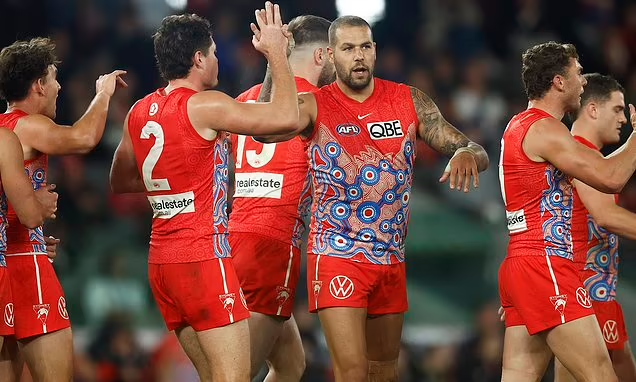
In a recent turn of events, former footy star turned Seven commentator Abbey Holmes has found herself at the center of a heated debate surrounding the punishment handed down to AFL player Jeremy Finlayson for his use of an anti-gay slur.
The controversy ignited when Holmes took a bold stance on the matter during a televised discussion on Seven’s sports program. Finlayson, a player for the GWS Giants, had been penalized for making derogatory remarks towards an opponent during a game.
Holmes, known for her candid opinions and insightful analysis, didn’t mince words when she voiced her views on the situation. Her stance, however, has divided opinions among fans, pundits, and fellow commentators alike.
While some have applauded Holmes for speaking out against discriminatory behavior in sports, others have criticized her for what they perceive as an overly lenient perspective on the matter. The debate has underscored the complexities surrounding issues of inclusivity and accountability within the sporting community.
Holmes’ argument hinges on the notion of rehabilitation and education, advocating for a more nuanced approach to addressing instances of offensive language and behavior in sports. She emphasizes the importance of understanding the root causes behind such actions and implementing measures to foster a culture of respect and acceptance.

However, her critics argue that Finlayson’s actions warrant harsher consequences, citing the need for a zero-tolerance policy towards discrimination and hate speech in professional sports. They contend that anything less than a severe penalty would undermine efforts to promote diversity and inclusion within the AFL and broader sporting landscape.
The controversy surrounding Holmes’ remarks has reignited discussions about the role of commentators in shaping public discourse on sensitive issues in sports. As influential figures with a platform to reach a wide audience, commentators like Holmes wield considerable influence in shaping attitudes and perceptions within the sporting community.
Ultimately, the debate over Jeremy Finlayson’s punishment serves as a sobering reminder of the ongoing work needed to address issues of discrimination and prejudice in sports. While opinions may differ on the appropriate course of action, it is clear that meaningful dialogue and proactive measures are essential in fostering a more inclusive and respectful sporting environment for all.





